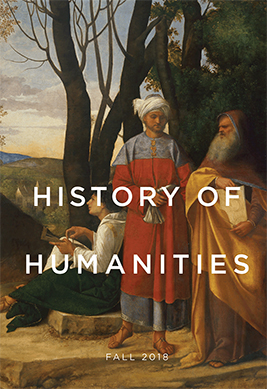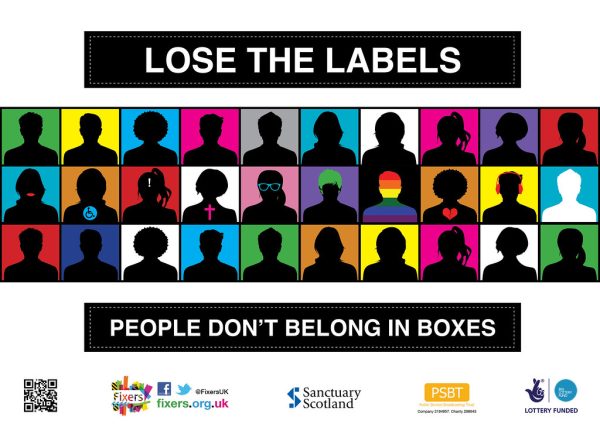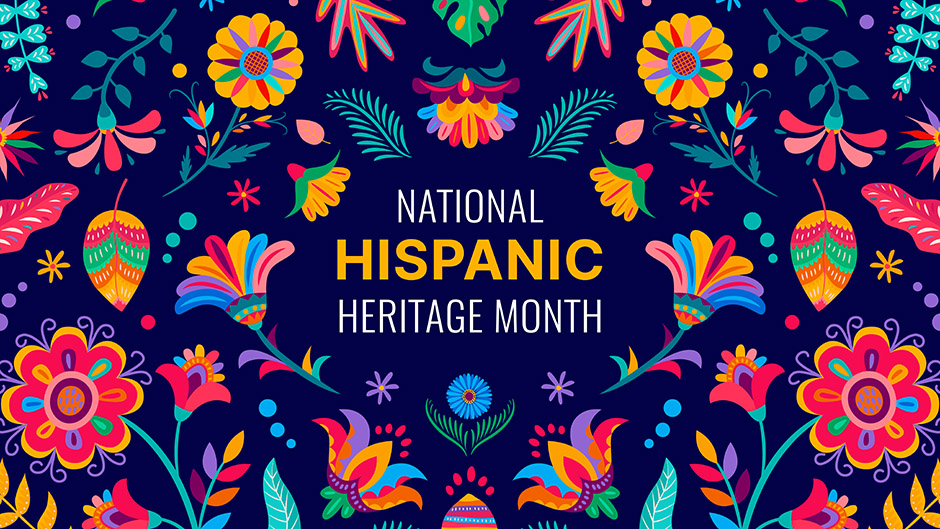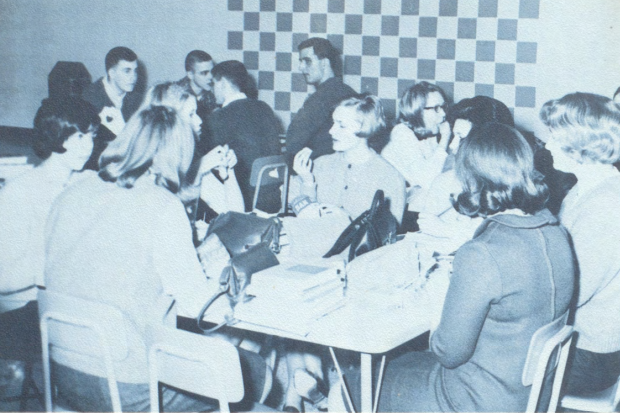Women are overtly disadvantaged in STEM fields because of persistent stereotypes labeling them as unfit for the field. Simultaneously, men are boxed into notably narrow definitions of what it means to succeed. Media and history have created a mindset where men are only successful if they can be the absolute best. Typically the “best” is labeled as careers in STEM with some kind of formal recognition for one’s work. Furthermore, it is most men’s ideology that emotions and creativity are things that must be suppressed because those are “feminine” traits.
Current Stigma
While men, unlike women in STEM, aren’t shunned from humanities studies, they typically push themselves away from the field because of societal norms. Societal norms often define masculinity as being strong, and strength tends to equate to not showing emotion. However, humanities studies, by definition, are the study of human culture, society, and history through the lens of understanding and emotion. Consequently, men feel that choosing a humanities study opens up their emotions to the world, making them weak.

This perception has only been furthered today because of internet personalities like Andrew Tate and his followers. Tate has stated many times that men need to “control their emotions.” He furthered this statement across many of his podcasts, where he explains that there’s no faster way to destroy your mindset than giving in to your emotions. He’s convinced men that in order to be masculine, they can’t be in touch with their emotions; he explains it’s normal to feel them but that they should be kept hidden to remain dominant. Basically he’s told people that “real men don’t struggle.” Tate has a particularly large influence on young men.
The Netflix show “Adolescence” delves further into how his influence works than what can be explained here, but in short, Tate has been able to convince young teenagers that they need to be tough and dominant over women. Tate’s comments have drawn connections in the minds of many young men, as historically STEM careers are a way to show intellectual dominance. This is typically because of STEM’s hyper-competitive and female-exclusionary history. In contrast, toxic masculinity has influenced many to see the humanities as ‘soft’ because of their connections to the human mind. Furthermore, studies like literature, gender, or culture are often the most stigmatized as being soft. This is based on A: on the fact that these studies lean more emotional than other humanities. B: because 81% of bachelor’s graduates in these fields are women, and as already established in the minds of these men, they can only be dominant if they are entirely above women (Gender Distribution of Bachelor’s Degrees in the Humanities, n.d.). This typically equates to them choosing male-dominated fields labeled as high-intellect studies.
Historical Stigma

Historically, men actually used to see humanities studies as masculine studies because we had not yet experienced the transition to STEM-based economic growth. There were, of course, men who partook in STEM (specifically mathematics); however, most of these men were also philosophers like Pythagoras and Plato.
It wouldn’t be until the scientific revolution that anyone truly saw value in STEM because it was still at such a mediocre state compared to now that nothing particularly significant to the common person could be done via STEM. Ultimately, though, men were able to be comfortable in their masculinity while being in touch with emotion and the world around them. Most of this is derived from the fact that no women would’ve been working at this time, so men had no need to prove dominance towards them.
For the most part, toxic masculinity wouldn’t arise in the workplace until somewhere between 1800 and 1945. It was at this time that we saw a shift in America. Economic value was no longer in humanities; it was in factories and inventions. The telegraph kicked off the economic shift, and the atomic bomb had set in stone how strength in STEM would quite literally create dominance, creating a permanent economic shift. Moreover, the inventions of medicines like penicillin further instilled a possibility of dominance as doctors had more tools to save lives. Some current effects of this are a male dominance in pharmaceuticals and a stark decline of male interest in philosophy.
Shifting Away from Humanities.
Ultimately, historical biases have made it exceedingly difficult for young men to navigate humanities today. On one hand, they have a genuine interest in the field; however, this is typically overshadowed by the societal expectation that strong and smart men pursue STEM. On the other hand, it can seem intimidating or degrading for men to study humanities because it’s a female-dominated field. As a result, men make up a very small proportion of those studying the humanities. Men studying humanities make up only 8% of degrees earned by men (Gender Distribution of Bachelor’s Degrees in the Humanities, n.d.). Adding onto that, men studying humanities are more involved with the less emotional majors. The top majors for men studying humanities are politics/history, English literature, and languages literature (meaning literature in languages other than English). In contrast, the lowest majors, not also shared by women, are classical studies and religious studies. These two studies are generally considered to have a more emotional foundation as they deal with human experience and purpose. As a result of this very limited male base in humanities, men tend to get defensive over interests in the field rather than pursuing it.
Influence of labels

Labels have a big effect on people. For example, going back to women in STEM, labels like incompetent, emotional, or “career woman” can make women feel discouraged to pursue their education because they feel no matter what they do, they’ll either be not good enough or trying too hard. This same concept applies to men. Common male labels are weak, too soft/feminine, or failing. Men are labeled weak if they can’t maintain a path in STEM or if they express interest in humanities. Additionally, men are often seen as too soft if they pursue humanities or believe in humanities significance because typically the largest support for humanities comes from women. The most significant label of all is failing. Men feel if they don’t attain a high status very early in their career that they will never make it and they’ve failed. This tends to affect a lot of men getting a humanities degree, as it takes about seven years to graduate and can take anywhere from one to twenty years to attain significant achievements using the degree. As a result, men stray from humanities for fear of it taking too long to succeed and because they fear being labeled weak or feminine.
Effect on Men in the Progress of Receiving a Humanities Degree
As a result of a combination of the factors identified, men struggle to stick with the humanities. It’s not easy to pinpoint just how many men don’t complete their degree; however, declines in awarded humanities degrees from 13.1% to 8.8% and declines in male enrollment suggest men are failing to complete their degree (Bachelor’s Degrees in the Humanities, n.d.). Many men who leave the field do so not because they lack skill but because of mental burnout. Researchers note that male burnout in humanities studies is typically characterized by a sense of ineffectiveness, which connects back to the male drive to quickly succeed and be the best. Alternatively, men who do finish their humanities degree are more likely to try and gatekeep. Meaning they try and control access to certain information, resources, or opportunities within the field. This is problematic as it spreads misogyny in the field but also makes it difficult for men who don’t conform to these misogynistic traits to succeed.
Deconstructing and Rethinking

If we are ever to push beyond these biases, we must redefine success. We must turn achievement into something that isn’t measured by money, job title, or gender but by showing strength in curiosity, collaboration, and empathy. Furthermore, we must shift away from the constant demand for STEM; rather, we should encourage STEM and humanities equally in a way that feels open to all students. Most importantly, it is absolutely necessary that we support efforts to dismantle harmful stereotypes for everyone’s benefit.
References
Gender Distribution of Bachelor’s Degrees in the Humanities. (n.d.). American Academy of Arts & Sciences. https://www.amacad.org/humanities-indicators/higher-education/gender-distribution-bachelors-degrees-humanities
Bachelor’s Degrees in the Humanities. (n.d.). American Academy of Arts & Sciences. https://www.amacad.org/humanities-indicators/higher-education/bachelors-degrees-humanities











